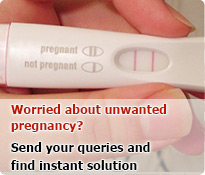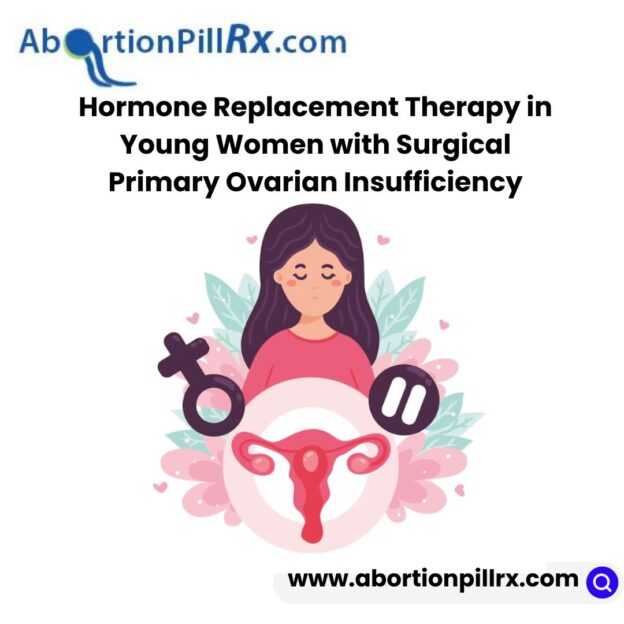Hormone replacement therapy (HRT) in young women with surgical primary ovarian insufficiency is very rare these days. Hormonal replacement therapy (HRT) supplements women with essential female hormones, estrogen, and progesterone, which are lost during the menopause transition or because of Bilateral Oophorectomy.
Oophorectomy involves the removal of both your ovaries, if a single ovary is removed it is called unilateral oophorectomy, and when both the ovaries are removed it is called bilateral oophorectomy. When bilateral oophorectomy is performed on a woman before her menopause stage she can suffer from Primary Ovarian Insufficiency (POI), this ovarian surgery and hormonal imbalance go hand in hand. It causes you early menopause and eliminates your chances of getting pregnant.
Once you go through the surgical primary ovarian therapy, you will start losing the essential hormones, especially estrogen. With a decrease in estrogen, women’s reproductive health is at risk, plus they are prone to harmful conditions like cardiovascular disease, dementia, cognitive decline, and osteoporosis (decrease in bone density). They can also be at risk of psychological conditions like depression, dry eye syndrome, and anxiety.
With the help of Hormone Replacement Therapy (HRT), women can overcome all the risky conditions and improve their quality of life. Women with Primary Ovarian Insufficiency need reproductive health interventions to better their lifestyle.
Why is Hormone Replacement Therapy in Young Women So Rare?
Data was released from the Women’s Health Initiative (WHI) trial. They performed a study on elderly postmenopausal women, which showed the adverse risks of Hormone Replacement Therapy (HRT). This involves an increase in the risk of breast cancer, stroke, and cardiovascular disease. This study has suppressed women with POI and early menopause to go through Hormone Replacement Therapy, thinking it could be fatal.
This is rather unfortunate because if you look at the women who have normal menopause, the situation is far better than young women with POI (Primary Ovarian Insufficiency). Women with POI have a higher risk of estrogen deficiency than women with normal ovarian function.
Women with POI and early menopause are very much in need of Hormone Replacement Therapy, as this therapy will replace the hormones that would normally be present and are required for women’s reproductive health.
Women who are suffering from POI also suffer from disturbing menopausal symptoms like insomnia, night sweats, hot flashes, decrease in sexual desire, pain during sexual intercourse, and dry vagina (lack of moisture), plus other symptoms like increased risk of fractures with decrease in bone density minerals, mood disorders, depression, sexual dysfunction, diabetes, autoimmune disease and more.
What are Some Early Menopause Treatment Options?
Early menopause could be caused due to POI (Primary Ovarian Insufficiency), cancer treatments (chemotherapy and radiotherapy), and bilateral oophorectomy. If you are someone who’s diagnosed with early menopause, you may have reduced estrogen levels, which puts you at risk of osteoporosis and cardiovascular disease.
Early menopause treatment options include: Hormone Replacement Therapy (HRT), also known as Menopausal Hormone Treatment (MHT).
When your estrogen levels decrease, this therapy can help in replacing the estrogen that should have been naturally present. Estrogen is very essential for our reproductive organs (ovaries, uterus, fallopian tubes, and vagina) to mature and it also helps in the development of breasts.
HRT (Hormone Replacement Therapy) reduces the symptoms of early menopause and the chances of you suffering from health conditions caused due to early menopause. Your health provider will most probably recommend you to get Hormone Replacement Therapy until the age of menopause. In case you have breast cancer, you are not liable to take HRT or MHT. For such situations, your healthcare professional may suggest a different treatment option.
Conclusion
Hormone Replacement Therapy in young women with surgical primary ovarian insufficiency is necessary, though it has some benefits as well as risks. Talk with your doctor or nurse and know the advantages and disadvantages of Hormone Replacement Therapy (HRT) in young women. See if you are suitable for this therapy by talking with your healthcare professional or you can choose some other option.
We suggest you not opt for Hormone Replacement Therapy without any guidance, especially if you have breast cancer. It could be a risk to women’s reproductive health and could result in mortality.





